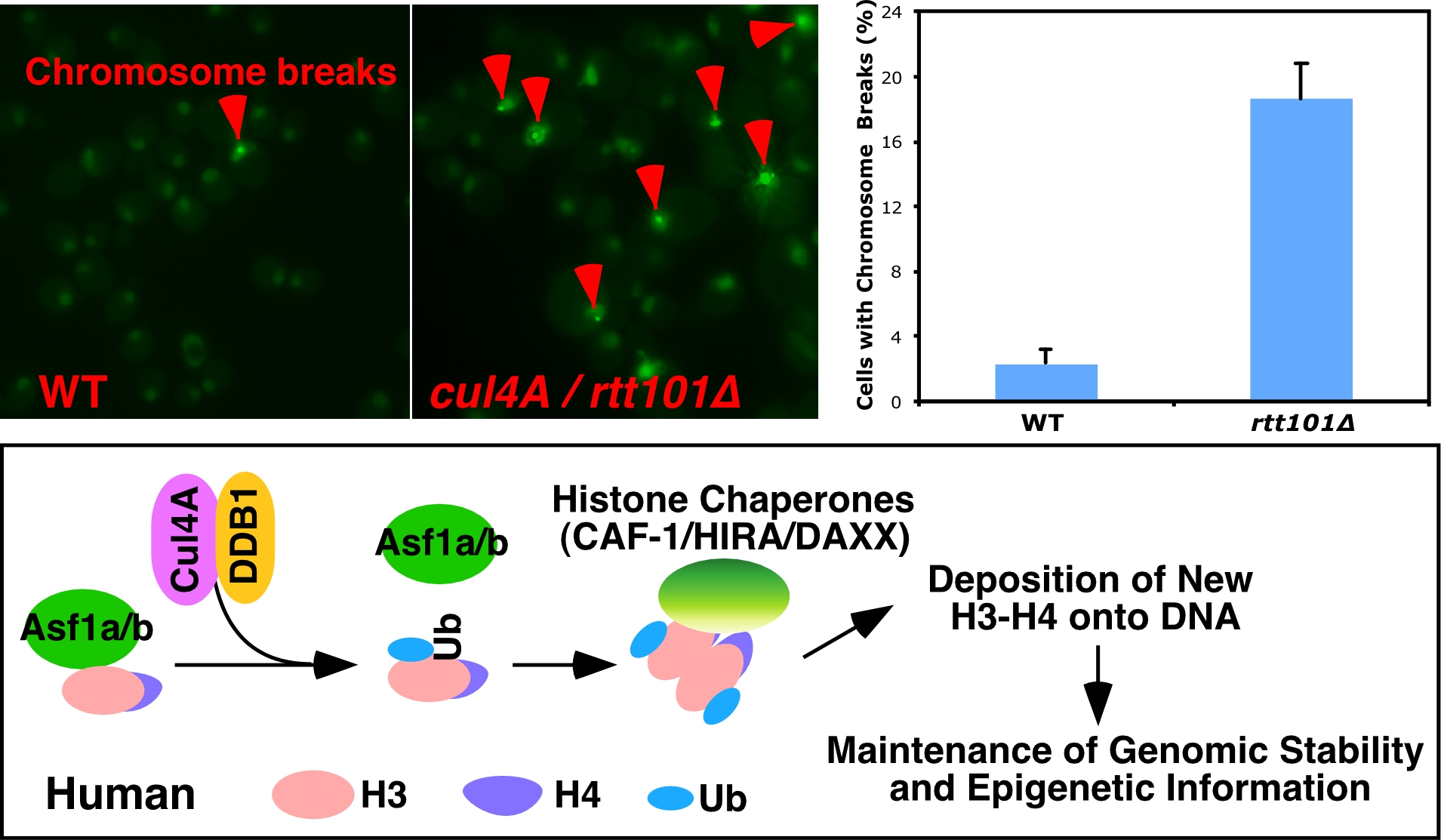-
Researchers Identify Role of Cul4 Molecule in Genome Instability and Cancer
Mayo Clinic researchers have shown that a molecule called Cul4 helps to deposit DNA-packaging histone proteins onto DNA, an integral step in cramming yards of genetic code into compact coils that can fit into each cell. When DNA isn’t packaged correctly, it can lead to the genomic instability characteristic of many forms of cancer. Senior study author Zhiguo Zhang, Ph.D., professor of biochemistry and molecular biology, says, “We suggest that cancer cells may have evolved a mechanism to disrupt proper nucleosome assembly by altering Cul4 and other factors, which in turn could affect the stability of the genome and promote the formation of tumors.”
The research is published in the Nov. 7 issue of the journal Cell.
Click here for news release.








